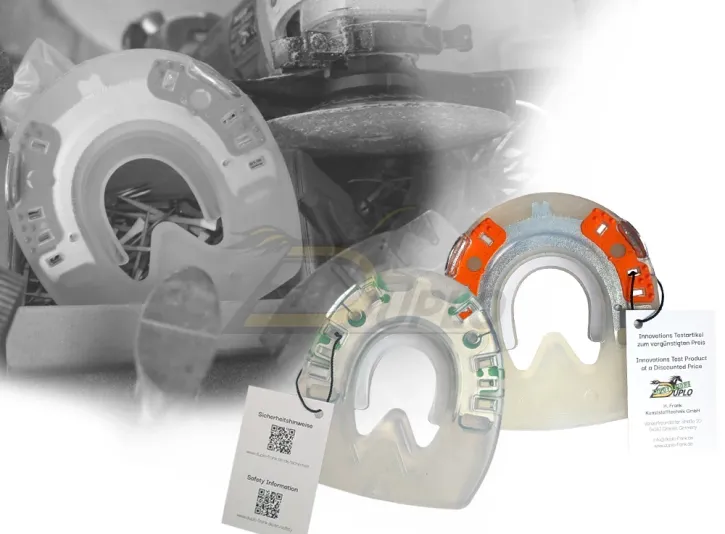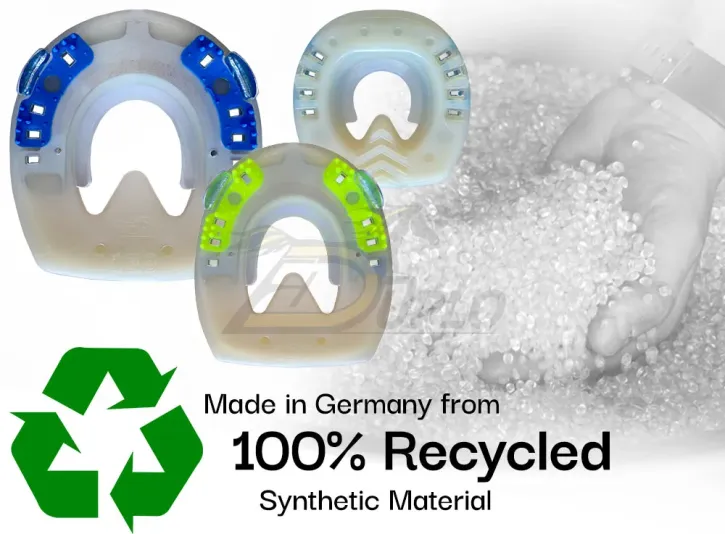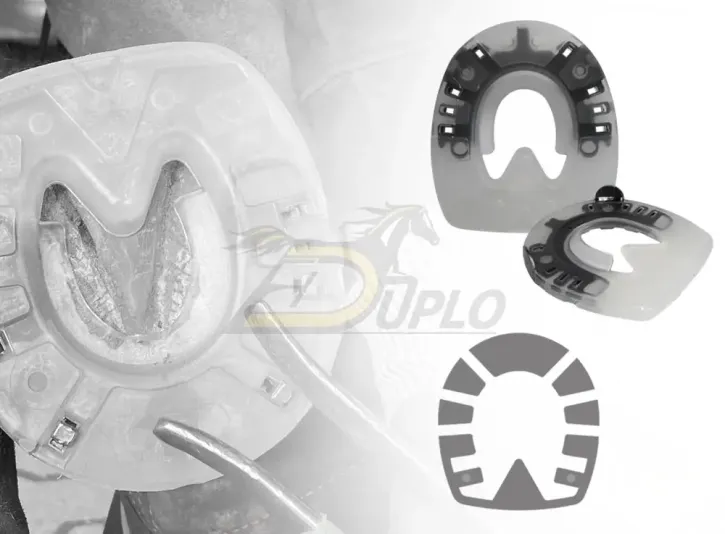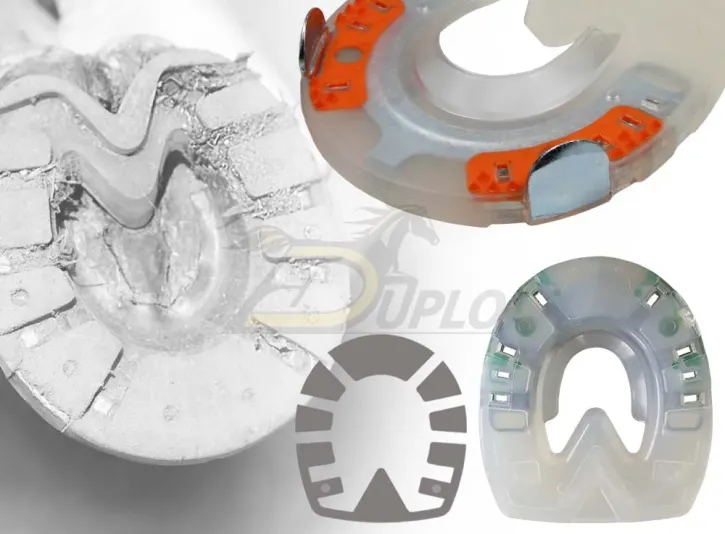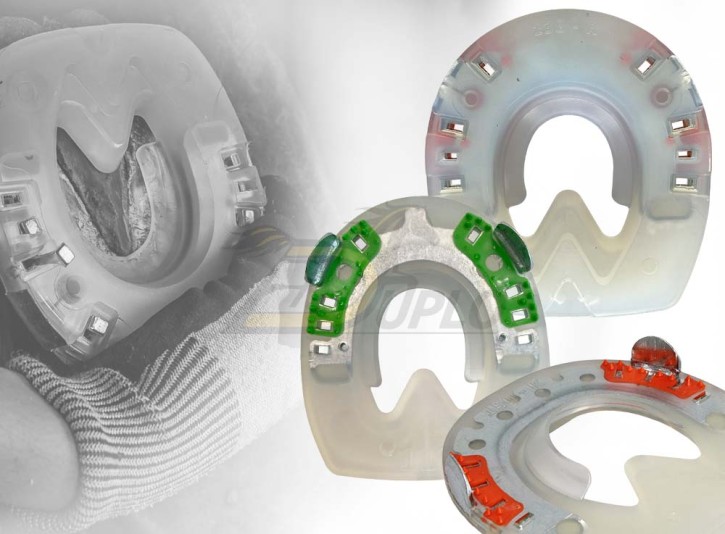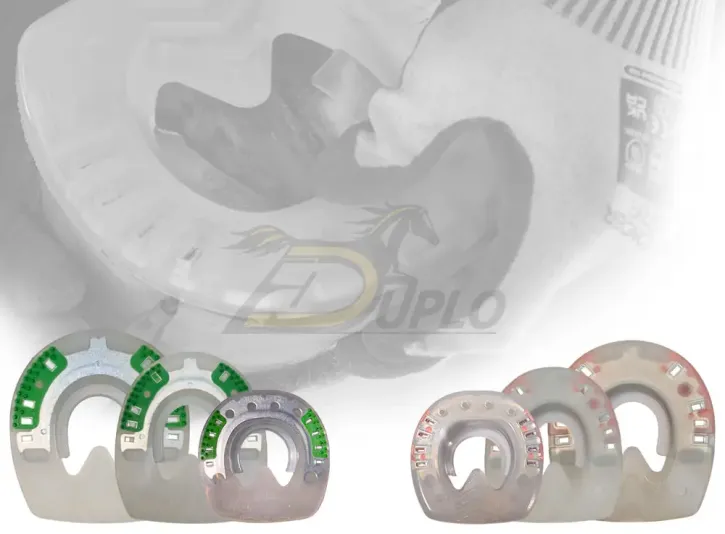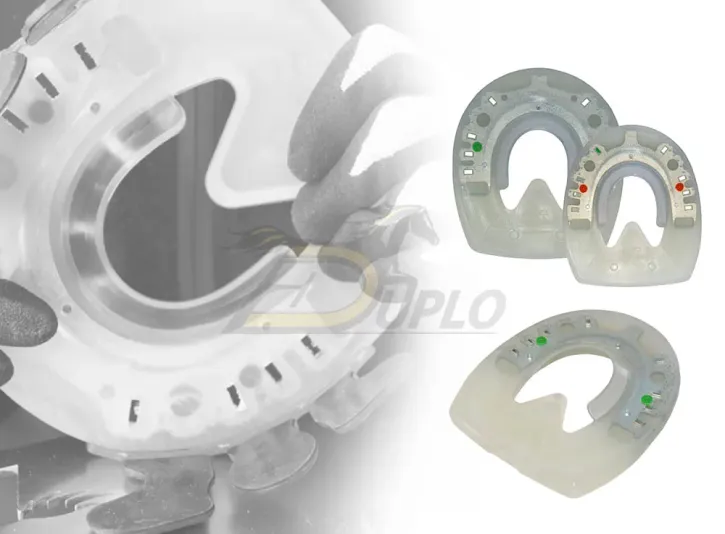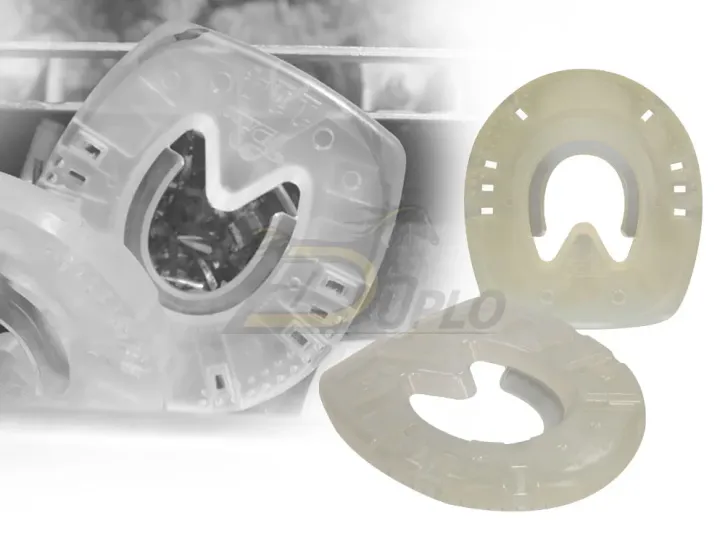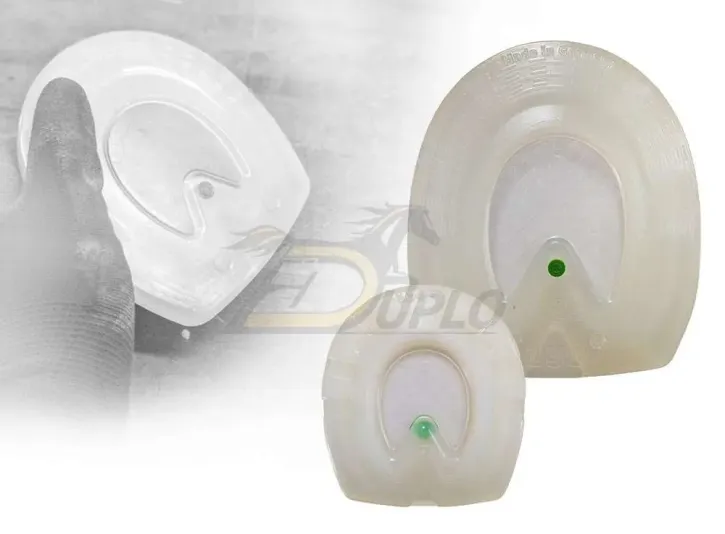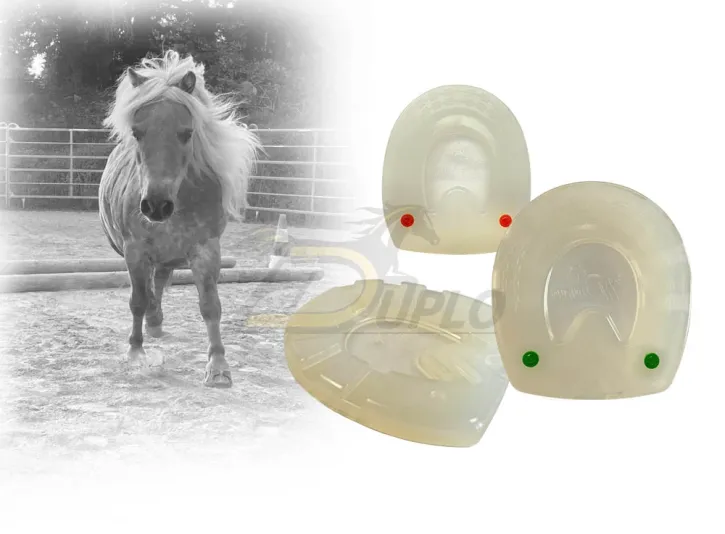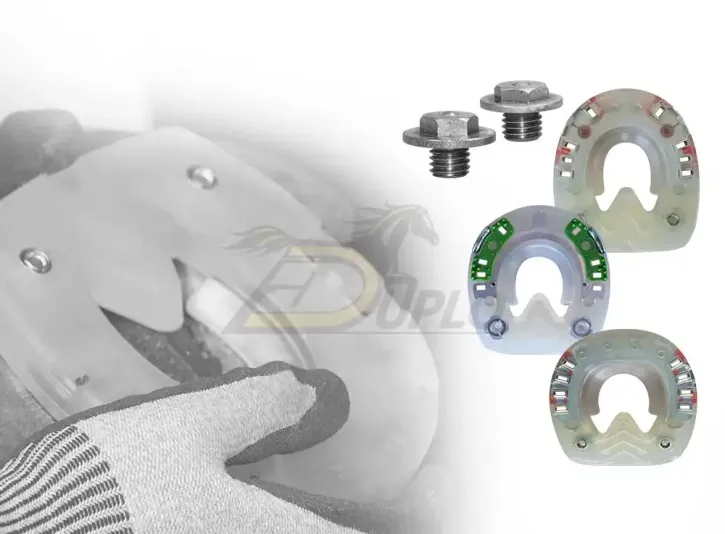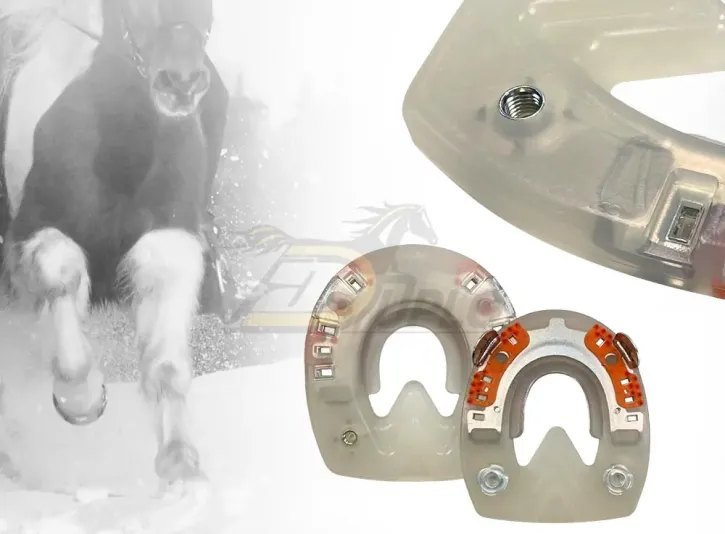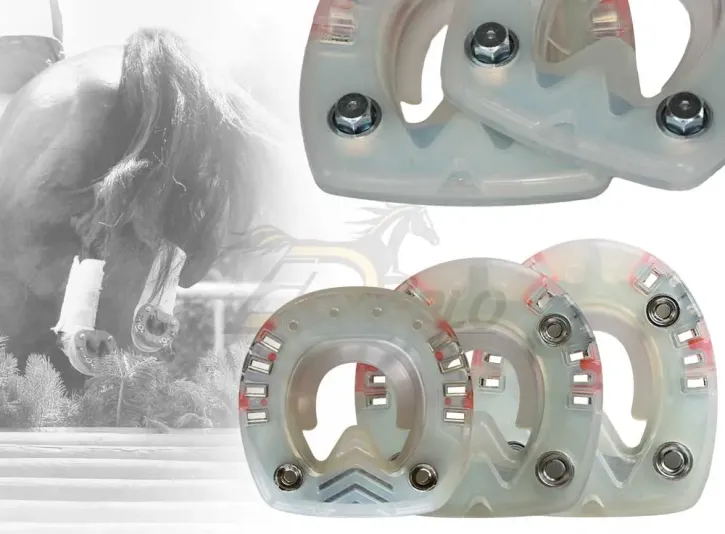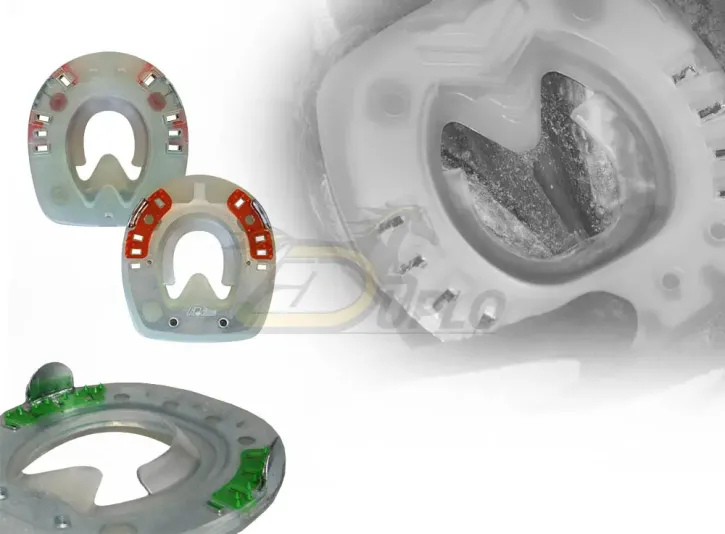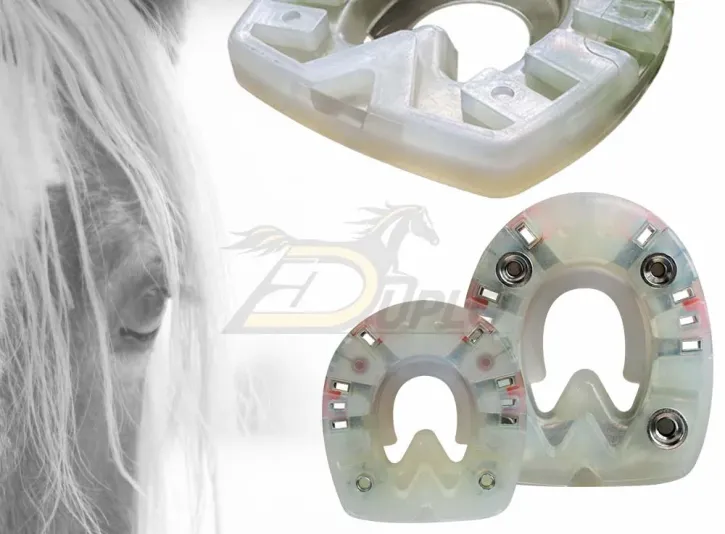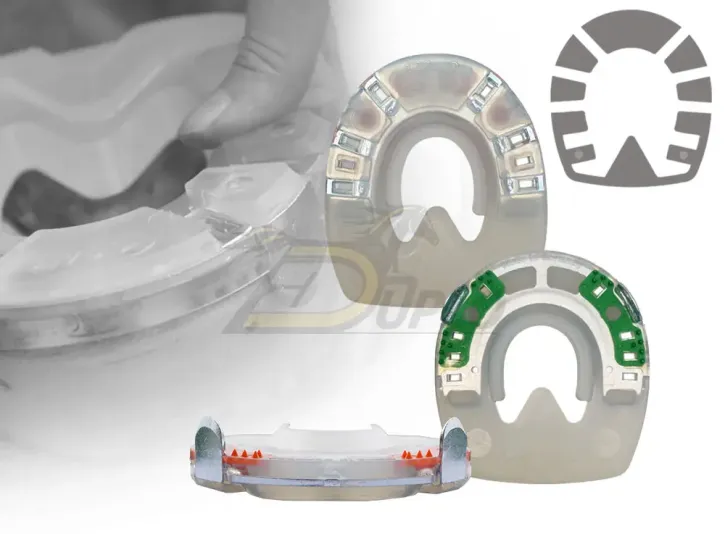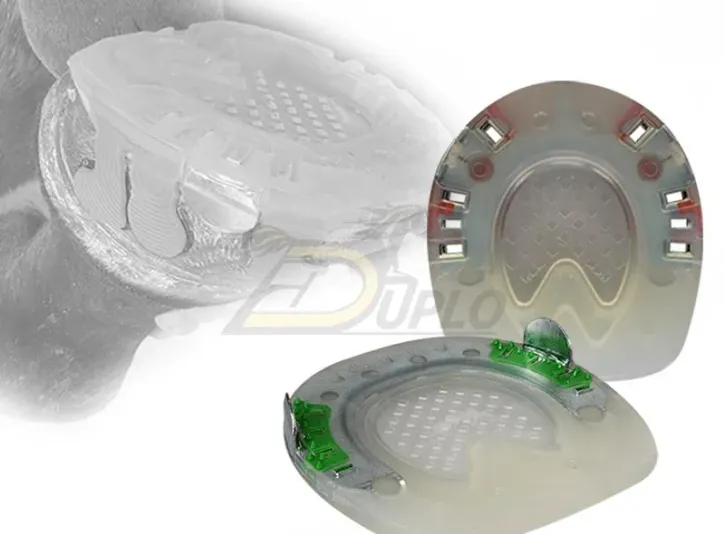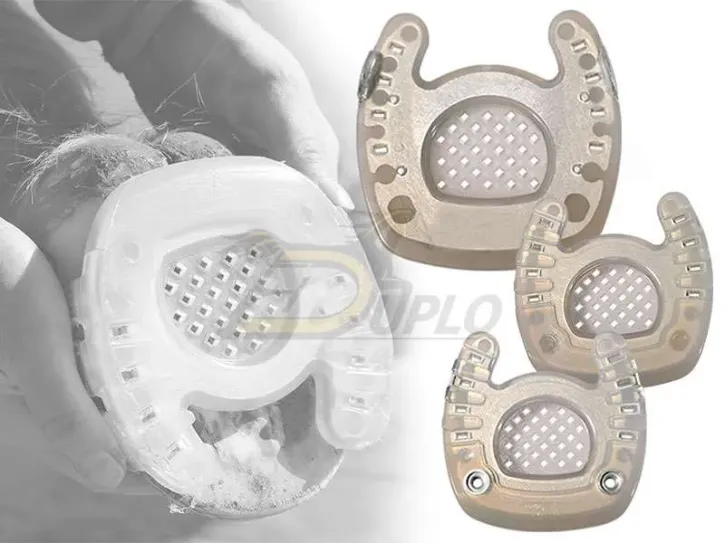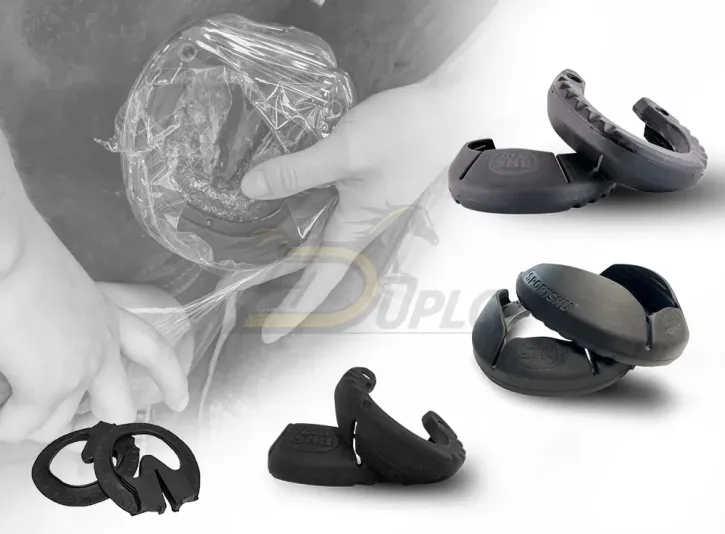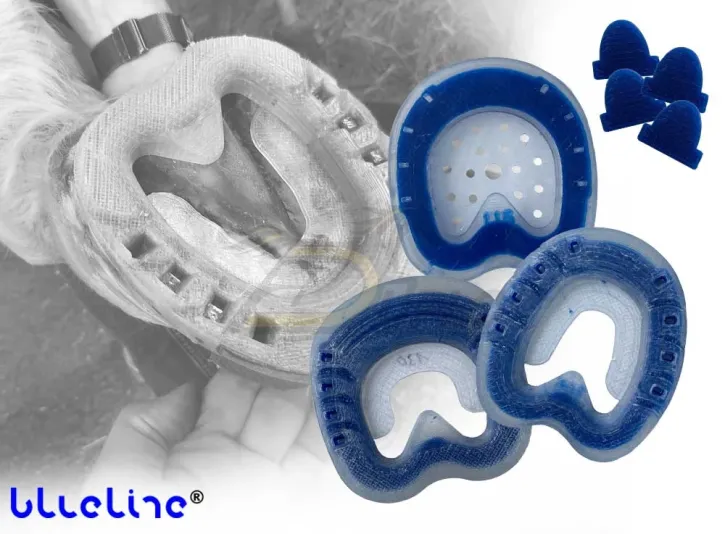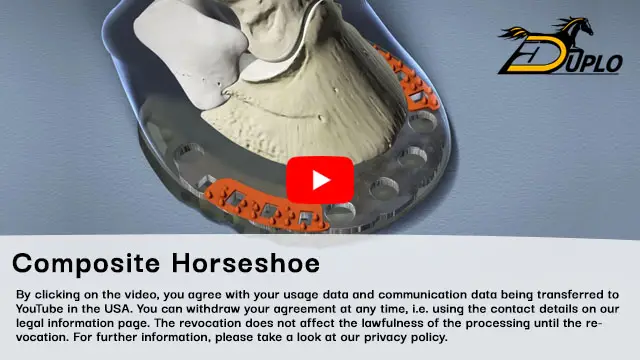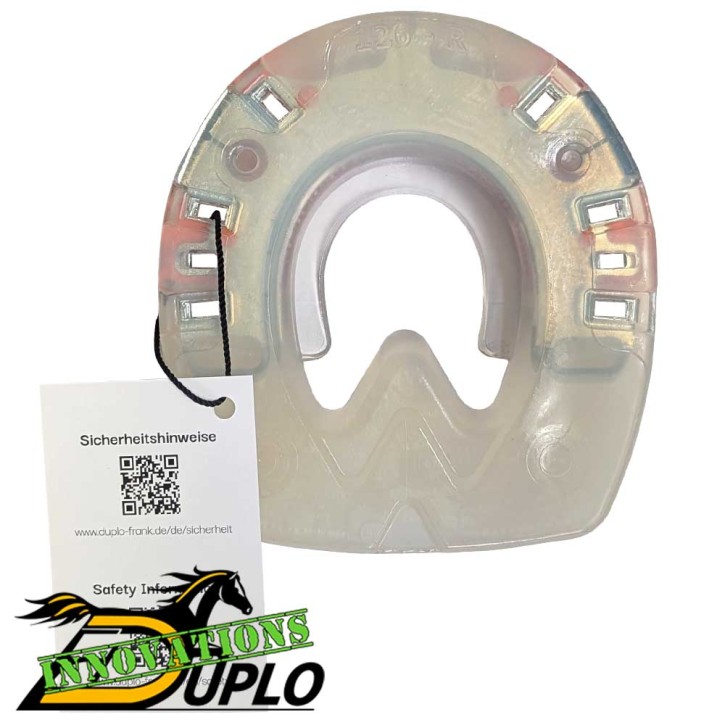Composite and Urethane Horseshoes
Steel Shoes, Pure Urethane
Horseshoes or Composites
Finding the Ideal Hoof Protection for Your Horse
The reasons why a horse needs horseshoes are diverse. If the horse struggles without shoes, the search for the ideal hoof protection begins. Since the answer to this question is not the same for every horse, we have an extensive range with approximately 20 models, 4 shapes, and over 30 sizes. This ensures that there is a suitable composite shoe for (almost) every horse and (almost) every application!
As you scroll down below the different horseshoes, you'll find a brief overview of the advantages of the two
components, steel and plastic. We'll inform you about how beneficial they can be for the horse, rider, and, of
course, the
farrier. In addition to our own composite and synthetic horseshoes, you will also find the GluShu
glue-on shoe as well as the blueline® evo! by Wolf
Busch® in this category.
All information on this page refers exclusively to our own product. Details about horseshoes from other
manufacturers can be found in the respective product descriptions.
For further information, our team is also available to help you find the perfect shoe for your horse's hooves.
Advantages of Urethane and Metal for the Horse's Hoof
When opting for a permanent hoof protection, the question arises whether to choose a traditional steel shoe, a pure urethane shoe, or a composite shoe.
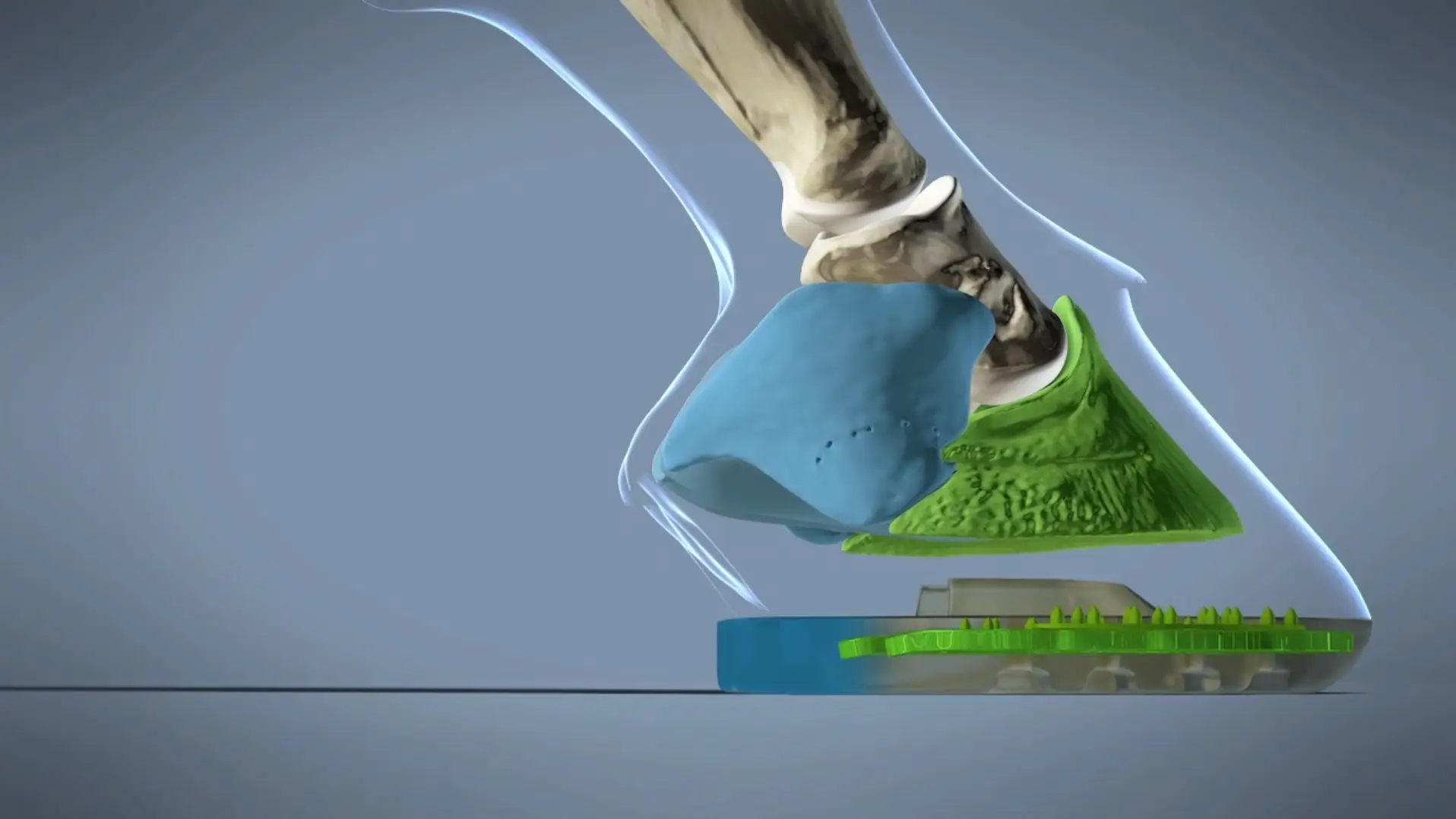
A composite, or hybrid, horseshoe essentially combines the traditional steel shoe with a pure urethane shoe. In the video, we demonstrate the function of a composite horseshoe on the hoof.
An argument that may initially deter many is the cost of our horseshoes. However, when considering the expenses associated with a composite horseshoe, it's important to note that certain accessories (such as a bar in the heel area, manually drilling threaded holes for studs, a shock-absorbing insole, or even the well-known Snowgrip®) often need to be purchased separately in case of a steel shoe – all of which are already integrated into the different models of our composite horseshoes. The final price of each composite shoe of course depends on the model and specific additional features.
The Components of a Composite Horseshoe and their Benefits for the Horse's Hooves
We share a common goal: We want to assist you in finding the 'ideal horseshoe' for your horse. Allow us to briefly outline the benefits of a composite shoe on the horse's hoof; if you opt for a shoe with a synthetic coating, you've come to the right place. However, even if a traditional steel shoe is the best choice for your horse, we have some interesting products in our range, including our studs, closure plugs , and our protective insoles.
Advantages of the Flexible Urethane Coating
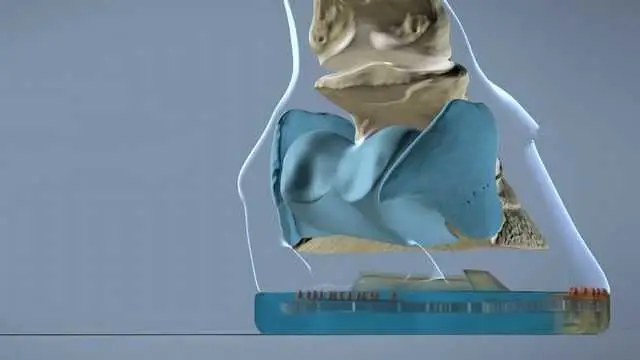
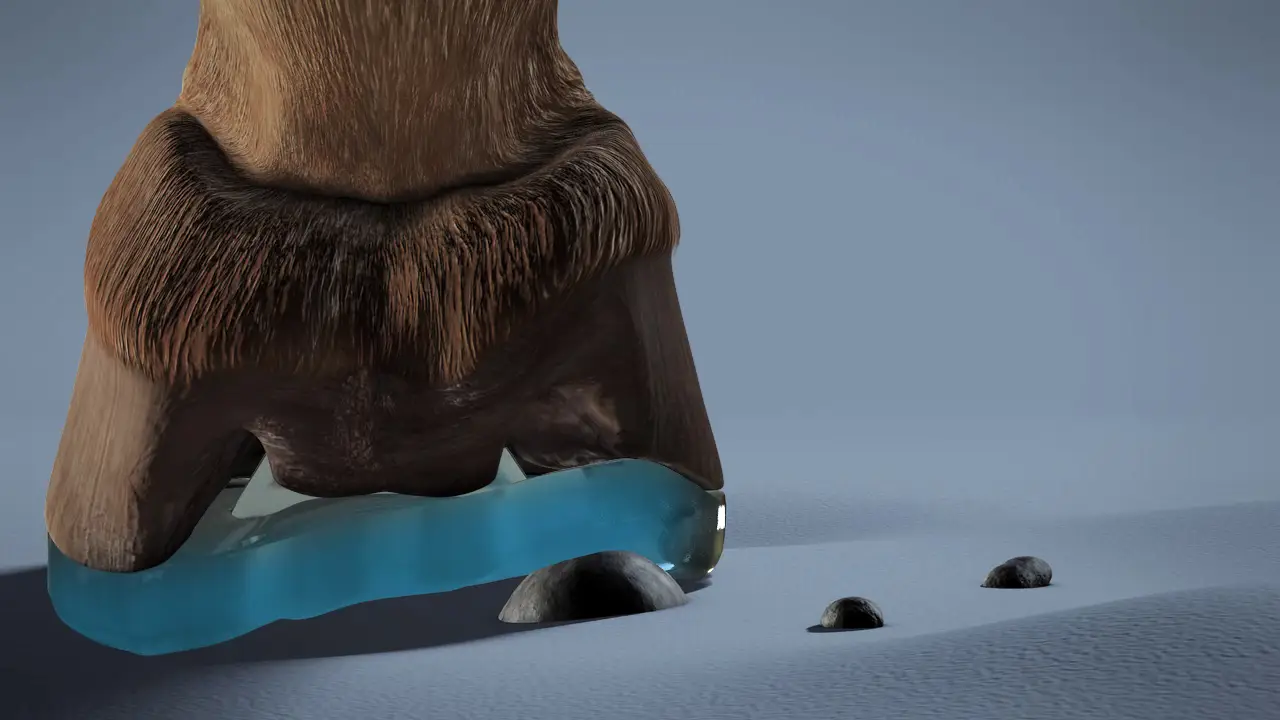
Similar to the horse's hoof, our 'hypbrid' horseshoe also consists of soft and hard components. The soft component, the urethane material, serves the following functions in both, a pure plastic or a composite horseshoe:
-
Shock Absorption
Thanks to the relatively soft synthetic cover, shock and high-frequency vibrations caused by the hoof's impact on the ground are considerably reduced; the horse benefits from a very comfortable walking experience. -
Stimulation of Hoof
Mechanism
The flexible urethane material encourages the mobility of the elastic hoof structures. The synthetic bar can improve the blood circulation of the horse's hoof. -
Natural Traction
The anti-slide behavior of a urethane horseshoe is comparable to a barefoot horse's and therefore more natural than the elongated sliding phase of a conventional metal horseshoe. -
Weight Savings
A regular composite horseshoe is less heavy than a conventional steel shoe with equivalent supplementary equipment (bar in the heel area + shock-absorbing inlay + debris guard). The reduced weight is joint-friendly. -
Reduced Injury Risk
The softer material and the round edges of a urethane horseshoe reduce the risk of injuries in herds and in case of irregular movements in comparison to a conventional steel shoe or the sharp-edged border of a bare hoof. -
Ground Protection
With a regular composite horseshoe without Spikes and studs, there is no contact between metal and ground because the nail heads are embedded in the synthetic material. If you ride sensibly, sensitive ground (e.g. asphalt streets or historical clinker pavement) will hardly be damaged by our horseshoes. -
Suitability as Winter Shoe
The molded synthetic lip acts like a debris guard - similar to a snowgrip®- and reduces the amount of snow and debris balling up. If necessary, you can also use spikes or studs for additional grip . In winter, we recommend the Standard version.
Advantages of the Solid Metal Core
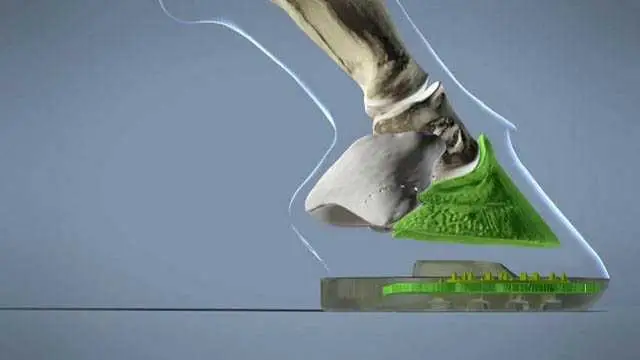
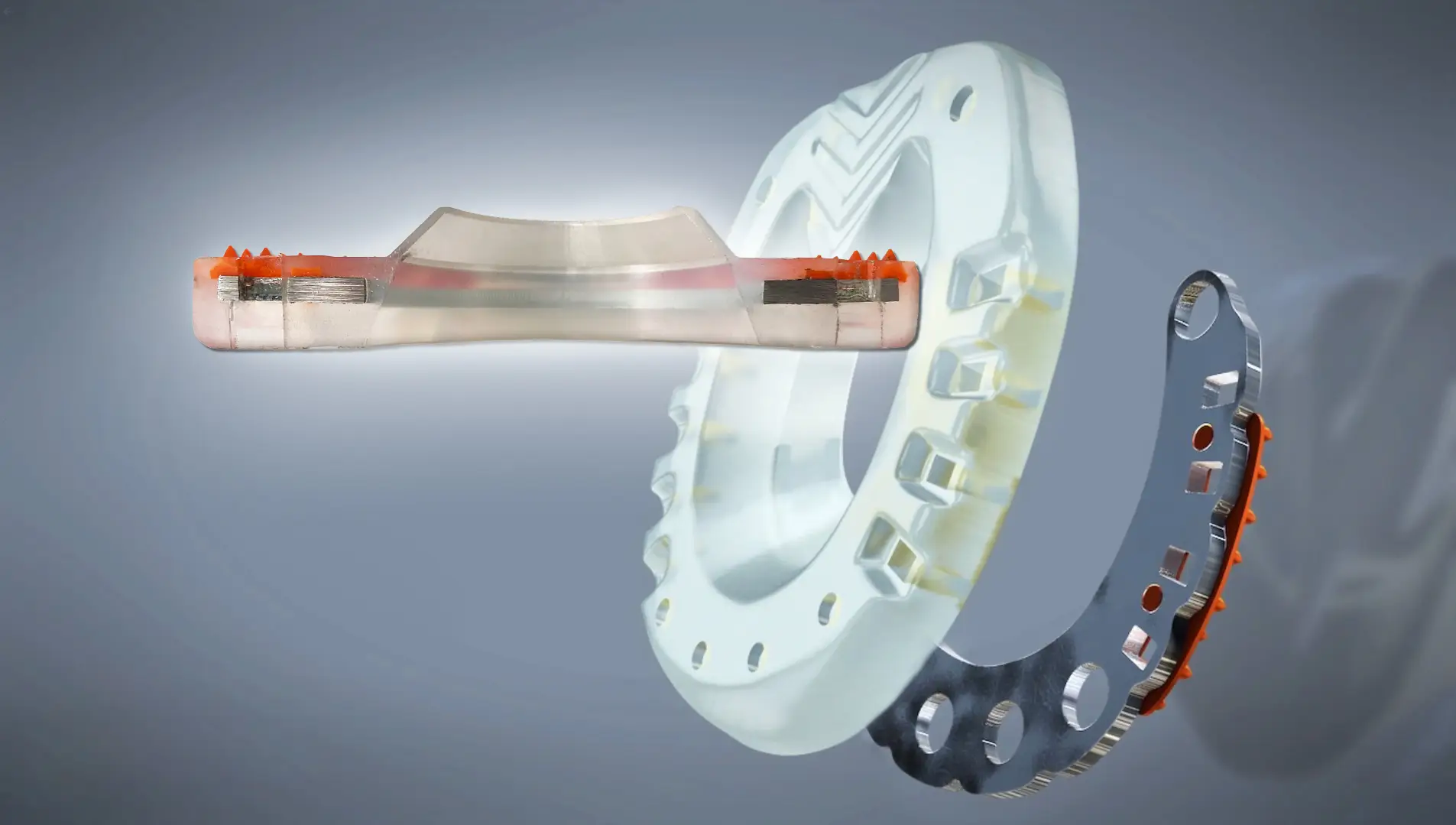
The metal core supports the bony areas of the hoof. Depending on the horse's needs, we also offer a composite straight bar shoe.
-
Optimized Pressure Distribution
Thanks to its solid metal inlay, a composite horseshoe is torsion-resistant and keeps its shape for a long time. This contributes to the long-life cycle of the horseshoe and similar to a steel shoe the solid metal core prevents the sole from getting pressurized. -
Reliable Nailing Slots
The nail holes are integrated into the metal inlay. This ensures that during the regular shoeing period, the nail head cannot slip through the nail hole. The effect is comparable to a steel shoe. As the oblong nail holes are positioned at 90 degrees to the white line , it is possible to place each nail individually and to adjust the horseshoe to irregular hoof shapes. When choosing the appropriate horseshoe nail, ensure that the nail head cannot slip through the nail hole of the horseshoe. We prefer to use nails with an E-head. -
Individual Modifications
With numerous customization options and a bit of craftsmanship, our horseshoes can be adapted to the specific shape of the hoof and tailored to the individual needs of the horse, much like a traditional steel shoe.
Application of our Pure Urethane and Composite Horseshoes
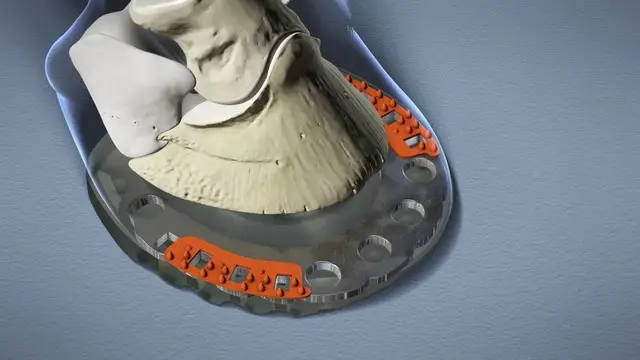
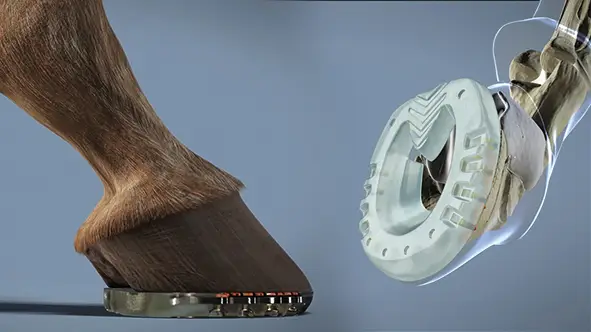
If you are a farrier, please contact our team - we have special buying conditions prepared for you. Please refer to the shoeing instructions and safety guidelines when using our products.
- Simple Application
Our shoes can be nailed or glued depending on the individual needs of the horse. It is also possible to apply them as a cast shoe using cast hooks and bandage (hoof cast). The correct application of our horseshoe is easy if the farrier applying it has the necessary knowledge and skills in nailing and clinching horseshoes and pays attention to a few key points. No special tools are needed – standard farrier tools are sufficient. -
Secure Fit
The knobs on the hoof side are pressed into the hoof wall and prevent the horseshoe from twisting out of position. In addition, some models are equipped with quarter clips which also help to ensure a secure fit, during the regular shoeing period. Please remove all knobs for a glued application of the horseshoe. - Nearly Customized Horseshoe
The advantage of the plastic coating is that the adjustment with an angle or belt grinder spares the joints of the farrier, which are often stressed during traditional forging. If needed, the shoe can be laterally widened or extended backward using our extensions. -
Wide Range of Sizes
Thanks to a wide range of sizes, even very small and very large horses benefit from our Horseshoes. The pony shoes start from a size of 50mm, and the Heavy Duty Shoes complete our size range up to 198mm. The interval between two sizes is 4mm up to size 178mm; from size 182mm, it is 8mm. -
Therapeutic Horseshoe
Our horseshoes are generally well-suited for problematic hooves and can be used to support the recovery process as part of therapeutic hoof care in case of several diagnosis. Our range includes, for example, Straight Bar shoes, models with a closed sole area for use with padding material, as well as a selection of open-toed horseshoes, which are often used in cases of laminitis . -
Abrasion
and Durability
In the case of a horseshoe with a urethane coating, abrasion resistance is a sensitive issue as it depends not only on the product but also on other factors such as the horse's behavior, riding discipline, ground conditions, and temperature. That's why we use various synthetic materials and offer especially abrasion-resistant models in our range. With the ideal combination of a horseshoe and external conditions, it is often possible to reuse the same shoe multiple times.





